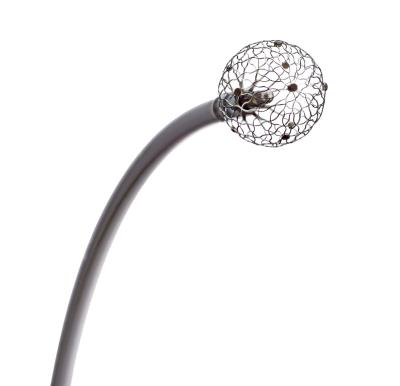Only a few months after Medtronic completed its acquisition of cardiac device maker Affera, the nearly billion-dollar buyout is already paying off.
A dual-use catheter originally developed by Affera that both maps out atrial fibrillation and other arrhythmias and also delivers pulsed-field and radiofrequency ablation therapies to treat the identified afib has now been cleared in Europe, Medtronic announced Wednesday.
With the CE mark approval secured, Medtronic said it will begin rolling out the Sphere-9 catheter and mapping software across the continent in the coming months. In the U.S., meanwhile, the FDA gave Affera the go-ahead to begin a pivotal trial of the technology in 2021, and Medtronic announced in December that it had completed enrollment in the trial.

After the Sphere-9 catheter is threaded through the veins to reach the heart, it automatically begins transmitting information to the connected mapping and navigation system to build electro-anatomical maps of the patient’s heart rhythm. Doctors can then use those maps in real time to choose the proper location to apply ablation therapy.
As for the therapy itself, Affera’s system offers two options: radiofrequency (RF) or pulsed-field (PF) ablation. The former is much more common and sees the catheter emit bursts of heat energy to destroy and scar over the areas of the heart responsible for a patient’s afib. Pulsed-field ablation, meanwhile, is still a largely novel concept—the FDA still has yet to clear any PFA systems—but aims to avoid the potential collateral damage of heat-based systems by briefly generating an electric field that interrupts the irregular cardiac signals causing afib.
“Current technologies require the use of separate [high-density] mapping and ablation catheters. The ability to map, ablate and validate with the Sphere-9 catheter enables the physician to eliminate the need to exchange catheters and empowers them to choose the energy source, whether RF or PF, based on the patient’s needs,” Khaldoun Tarakji, M.D., vice president and chief medical officer within Medtronic’s cardiac ablation solutions business, said in this week’s announcement.
Tarakji continued, “All this leads to improving efficiency and, most importantly, enhancing the safety of ablation procedures for our patients.”
The CE mark approval for the Sphere-9 system comes not long after Medtronic notched yet another win in the pulsed-field ablation race: Earlier this month, the company presented promising results of a study of its PulseSelect device.
The study recruited 300 people with either paroxysmal or persistent afib who hadn’t responded to pharmaceutical therapies. About two-thirds of the paroxysmal afib patients and more than half of those with persistent afib met the study’s primary safety goal by avoiding a variety of potential complications and follow-up procedures within 12 months of the initial PFA procedure. Additionally, more than 60% of all patients were free from recurrence of any atrial arrhythmias by the end of the one-year period.
Medtronic is currently racing against competitors like Boston Scientific and Johnson & Johnson’s Biosense Webster to lead the way in pulse-field ablation technology—a sentiment echoed by Rebecca Seidel, president of Medtronic’s cardiac ablation solutions business, in this week’s announcement about the Sphere-9 device: “Along with the PulseSelect PFA system, we are proud to be among the first to bring novel single-shot and focal PF technologies to patients around the world,” she said.